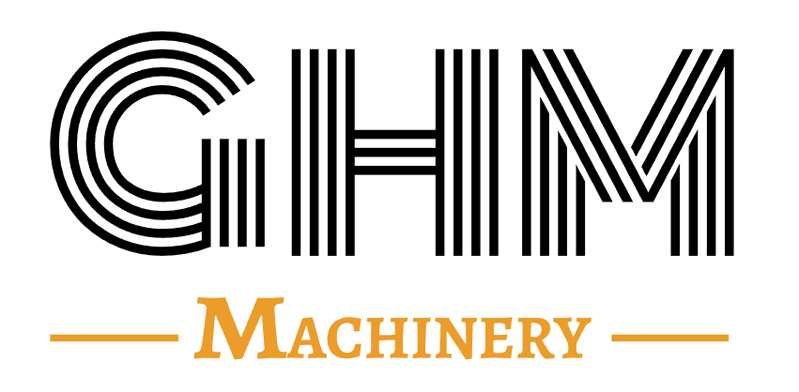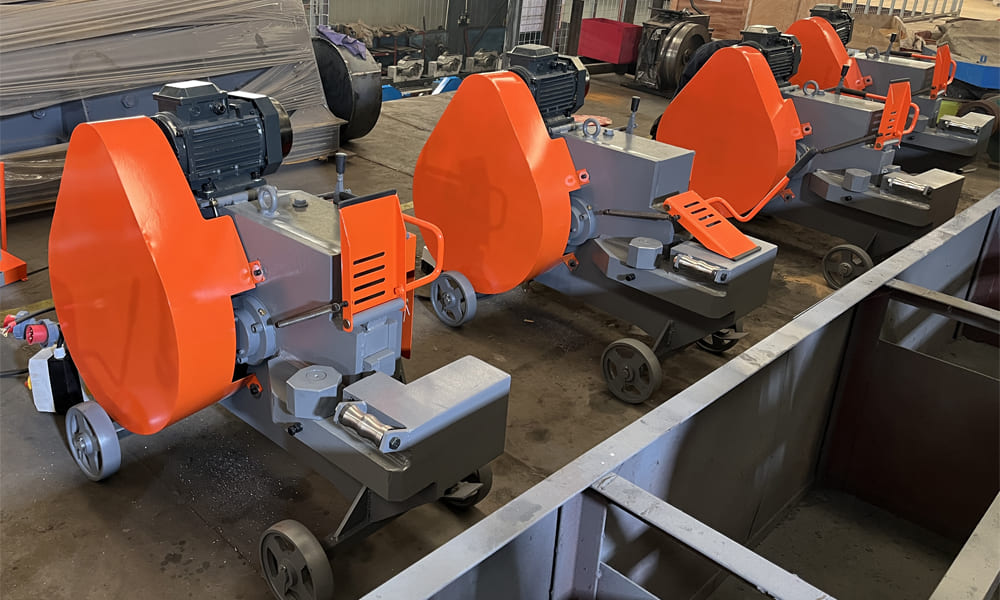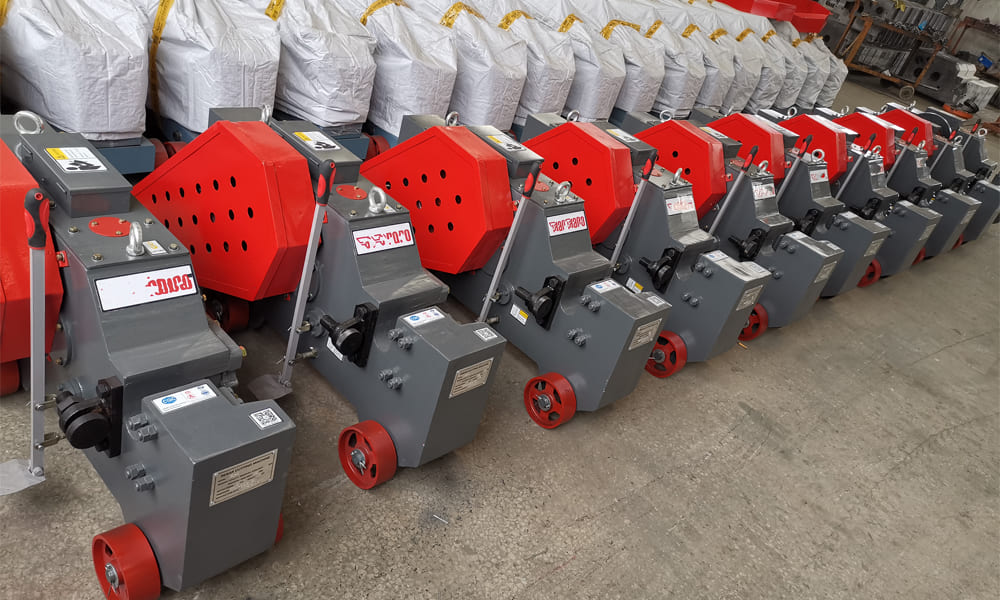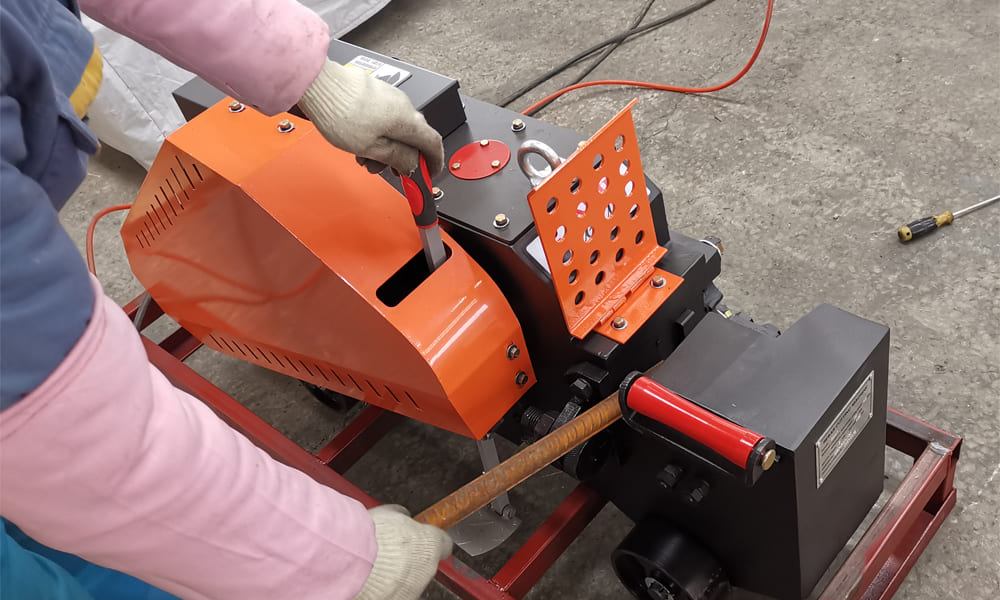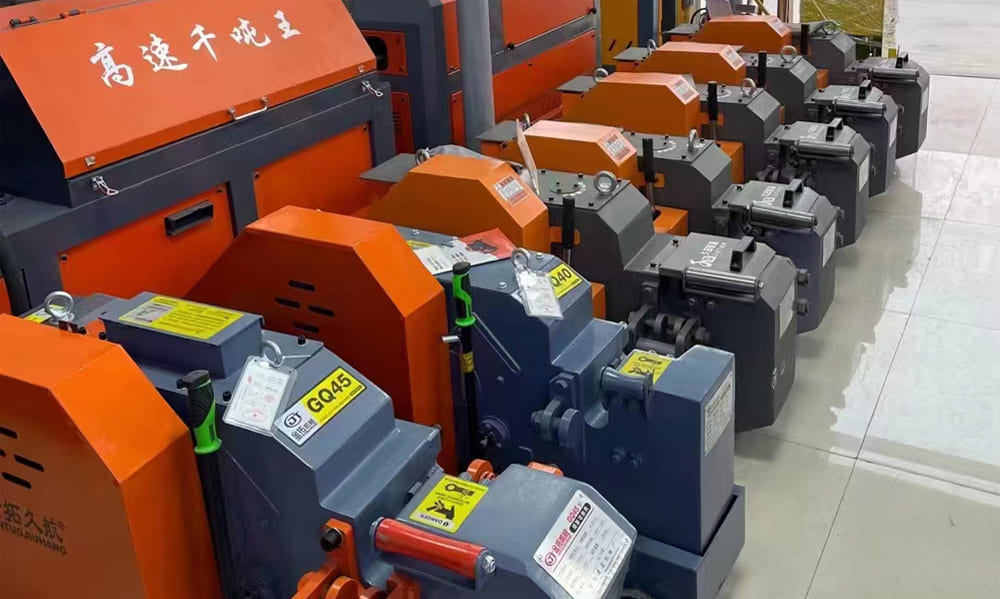Rebar Bender Cutter Machine
1. Rebar Bender Cutter Machine
Function:
Rebar Bender Cutter Used to bend steel rebars into specific angles (e.g., 90°, 135°) or shapes (e.g., stirrups, hooks) as required in construction.
Types:
-
Manual Benders: Hand-operated, suitable for small-scale projects.
-
Semi-Automatic Benders: Electric-powered with manual feeding.
-
CNC Bending Machines: Fully automated, programmable for high-precision bending.
Working Principle:
A motor rotates a bending disc, while pins or rollers apply force to bend the rebar around a central axis.
Key Features:
-
Handles diameters typically ranging from 6mm to 40mm.
-
CNC models improve efficiency and reduce human error.
-
Safety precautions are critical to avoid rebound injuries.
2. Rebar Cutting Machine
Function:
Designed to cut rebars to specified lengths quickly and accurately.
Types:
-
Manual Cutters: Hydraulic or lever-operated for light-duty work.
-
Electric Cutters: Common on construction sites (cuts 6–40mm rebars).
-
Hydraulic Cutters: For heavy-duty cutting (up to 50mm+).
-
CNC Cutting Machines: Automated length measurement and cutting.
Working Principle:
A motor-driven blade or hydraulic system shears the rebar cleanly. Tungsten carbide blades are often used for durability.
Key Features:
-
Fast operation (e.g., 20–30 cuts per minute).
-
Smooth cuts minimize material waste.
-
Regular blade maintenance ensures longevity.
3. Key Differences
| Aspect | Rebar Bending Machine | Rebar Cutting Machine |
|---|---|---|
| Primary Use | Shaping rebars (bending) | Sizing rebars (cutting) |
| Power Source | Electric / Manual / CNC | Electric / Hydraulic / CNC |
| Critical Part | Bending disc & pins | Blade or hydraulic cylinder |
| Applications | Stirrups, hooks, U-shapes | Precise rebar length preparation |
4. Safety & Maintenance Tips
-
Wear PPE (gloves, goggles) to prevent injuries.
-
Avoid overloading—use machines within their rated capacity.
-
Lubricate moving parts and inspect blades/dies regularly.
-
Secure the machine to prevent vibration or displacement during operation.
5. Purchasing Guide
-
For small projects: Manual or electric models are cost-effective.
-
For large-scale production: Opt for CNC machines for speed and precision.
-
Brand reliability: Choose reputable manufacturers (e.g., GHM Machines, Schnell, MEP).
-
Multi-functional options: Some machines combine bending, cutting, and straightening.
For technical specifications, always refer to the equipment manual or consult the supplier.
